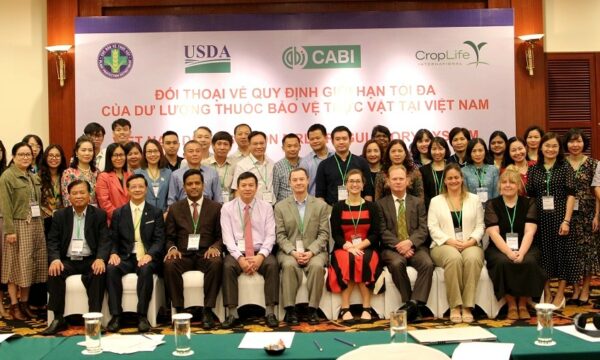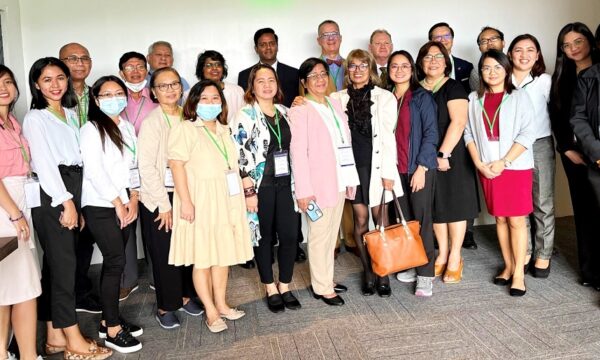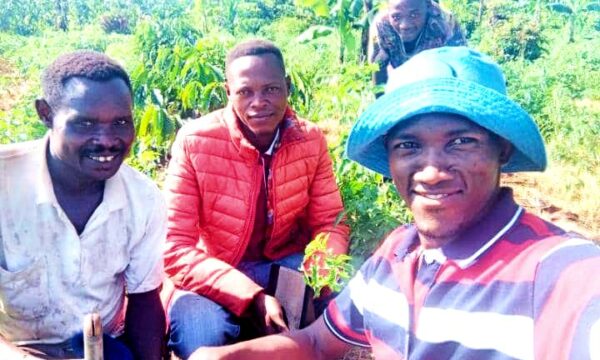
CABI has teamed up with the United States Department of Agriculture (USDA), the Inter-African Phytosanitary Council of the African Union (AU-IAPSC) and the International Plant Protection Convention (IPPC) Secretariat, to hold a workshop in Entebbe-Uganda to promote the Electronic phytosanitary certificate (ePhyto) among African Union’s (AU) 55 Member States.
The IPPC ePhyto solution aims at improving the management of plant health risks by reducing challenges associated with paper certificates, thereby making trade between countries safer, faster, and cheaper.
It is a document issued by the exporting country to the importing country as a guarantee that the plants, plant products, or other regulated objects described therein meet the conditions set out by importing country.
The workshop sought to encourage AU Member States to make greater use of the IPPC ePhyto Solution, given the numerous benefits the Solution guarantees to their countries’ trade and economic development. The workshop is part of activities under the project supporting the implementation of the Plant Health Strategy for Africa funded by USDA.
So far, only 18% of AU member states are fully engaging through the IPPC ePhyto Solution, presenting a greater need for more vigilance from the remaining countries, says Dr MaryLucy Oronje, Scientist, SPS, based at CABI’s regional centre for Africa in Nairobi, Kenya.
“Most African Member States through the NPPOs are somewhat aware of the IPPC ePhyto solution but just 10 out of 55 are successfully exchanging through the ePhyto hub while 9 are registered and undertaking testing.”
She added that a recent study supported by the USDA identified a range of challenges to the implementation of the IPPC ePhyto Solution including inadequate legal frameworks to support ePhyto adoption, limited funds available, and inadequate technical capacity of staff to support its rollout.
“In light of such challenges, the workshop seeks to not only raise awareness of the benefits of the IPPC ePhyto solution but also to help AU Member States identify and overcome the various barriers to its implementation,” she said.

Dr Oronje said despite the low uptake of the IPPC ePhyto Solution, increased engagement can be achieved by following a designated ePhyto adoption roadmap, which the workshop sets to put into effect.
Dr Sandrine Bayendi Loudit, Acting Coordinator AU-IAPSC said beyond gathering the Member States for knowledge exchange in the promotion of ePhyto implementation in Africa, the meeting is crucial as ePhyto is a key component in the successful implementation of the African Continental Free Trade Area (AfCFTA).
“The AfCFTA is one of the flagship projects of African Union’s Agenda 2063 so any such solution that drives that agenda, and in our case to help improve management of plant health, is fundamental. This meeting will set a new pace and challenge ourselves with new targets for enhancing the ePhyto uptake at a continental level,” she said.
Phytosanitary certification is a key part of the International Plant Protection Convention (IPPC) – an intergovernmental treaty that supports harmonized requirements to prevent the movement of plant pests with traded commodities.
Mr Dominique Menon, ePhyto Solution expert at IPPC headquarters in Rome, Italy said the implementation of electronic phytosanitary certification through the IPPC ePhyto Solution is critical to develop the economy of countries through safe trade and efficient trade flows.
It addresses one of the three strategic objectives of the IPPC Strategic Framework 2020–2030: “Facilitate safe trade development and economic growth” and, is one of the eight key development programmes included in the agenda of the IPPC Strategic Framework 2020-2030: “Harmonization of Electronic Data Exchange.”
Additional information
Main image: Credit: MaryLucy Oronje
Further information on ePhyto see https://www.ippc.int/en/ephyto/ and https://www.ephytoexchange.org/landing/
Related News & Blogs
CABI’s GRASP Fellowship awardee working in partnership to help increase food safety in Uganda’s urban markets
Dr Monica Kansiime, who was awarded a Gender Responsive Agriculture Systems Policy (GRASP) Fellowship aimed at improving policy process in agri-food systems, is working in partnership to help increase food safety in Uganda’s urban fresh fruits and vege…
30 January 2024




